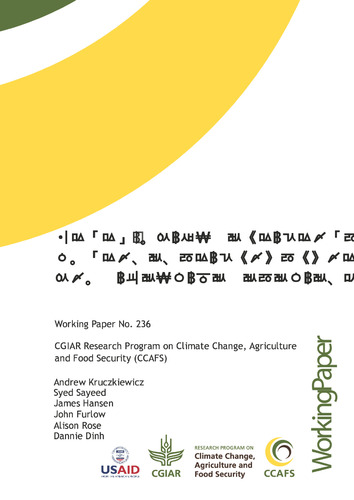Review of Climate Services Governance Structures: Case Studies from Mali, Jamaica, and India
Abstract
The development of sustainable climate services is acknowledged as a key step in building climate-smart practices. Further, it has been noted that successful and sustainable climate services have structures of governance that are coherent and transparent for the stakeholders involved. To facilitate a discussion about what governance processes might help sustain climate services for agriculture in Rwanda, the CGIAR Research Program on Climate Change, Agriculture and Food Security (CCAFS) commissioned an assessment of case studies on structures of governance for climate services, focusing on national level climate services for agriculture that have been considered successful. The objective of this document is to present an exploration of governance structures for national level climate services— specifically agro-meteorological climate services provided to smallholder farmers—to identify ways in which CCAFS can provide guidance on key principles. This assessment and subsequent analysis are based on 3 case studies: Mali, Jamaica, and India. We explore common themes of effective and sustainable climate services to inform the development of structures for governance of a national level climate service. In doing so, we provide a more granular analysis on three key components: multi-disciplinary working groups, agreements and memoranda of understanding, and monitoring and evaluation processes. For each component, the following themes are noted as key considerations: identification and inclusion of appropriate organizations and key personnel, level of formality, and funding.

